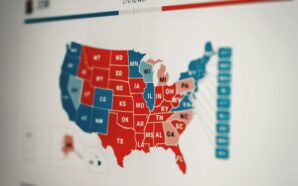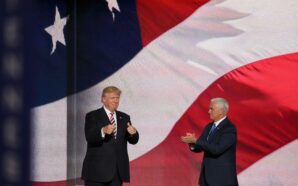

Credit: Unsplash
The recent incident involving U.S. soldier Travis King, who crossed from South Korea into North Korea, has garnered significant international attention and raised questions about the motivations behind his actions. The situation has unfolded against complex diplomatic relations, human rights concerns, and potential propaganda implications.
Travis King, a 23-year-old U.S. soldier from Wisconsin, crossed the border into North Korea during a guided tour of the demilitarized zone last month. North Korea’s state-run Korean Central News Agency (KCNA) reported that King confessed to entering North Korea due to alleged “inhuman maltreatment and racial discrimination within the U.S. Army.” He reportedly cited disillusionment with inequality in American society as a motivating factor.
The U.S. government responded by focusing on ensuring King’s safe return. However, it could not independently verify the statements attributed to King and had not received information about his health or treatment since his crossing.
King’s background reveals that he joined the U.S. Army in 2021 and held the rank of Private 2nd Class and cavalry scout with the 1st Armored Division. Prior to his crossing, he had faced legal issues in South Korea, including assault and criminal damage charges, and was scheduled to face military disciplinary proceedings in the U.S.
Historically, while infrequent, instances of U.S. soldiers crossing into North Korea have occurred, with North Korea often using such incidents for propaganda. The case raises questions about the complexities of diplomatic relations between the U.S., South Korea, and North Korea and the potential to exploit King’s situation for propaganda purposes.
A U.S. Soldier by the name of Travis King got tired of the racism and discrimination he faced in the Army an in America, has illegally fled over to live and join North Korea. “He wants to stay over here says North Korean leadership.” pic.twitter.com/GVbYCLdxbL
— Black Millionaires ® (@Blackmillions_) August 17, 2023
This incident coincided with a UN Security Council meeting to discuss North Korean human rights abuses. The meeting, requested by the U.S., Japan, South Korea, and Albania, underscores the broader concerns about human rights violations in North Korea.
Experts have cautioned that King’s situation could be used by North Korea as a propaganda tool against Western societies, potentially portraying Western nations as non-democratic, racist, and repressive. While the U.S. government remains committed to King’s safe return, experts express skepticism about his chances of returning to the U.S. without being utilized for North Korean propaganda.
The situation highlights the intricate diplomatic challenges and human rights issues surrounding the case as a reminder of the complexities of international relations in the region.
Is COVID Making a Comeback in 2023?
Trump Opts Out of First GOP Debate
-
President Joe Biden’s reelection strategy takes a surprising turn as the Rust Belt, not the Sun Belt, emerges as...
-
In a significant legal development, U.S. District Judge Aileen Cannon has declined former President Donald Trump’s request to dismiss...
-
Major Collision Causing the Collapse of the Bridge The recent collapse of the Francis Scott Key Bridge in Baltimore,...
-
Donald Trump is on the brink of a crucial deadline in a business fraud case, with just a few...
-
Sylvia Gonzalez, a newly elected city council member in a small Texas community, was embroiled in controversy when she...
-
Is TikTok Getting Banned in the States? The United States House of Representatives has voted with bipartisan support to...
-
The 2024 Election Race Continues Between Joe Biden and Donald Trump With the 2024 general election drawing closer, President...
-
Another Successful Moon Landing Intuitive Machines, a commercial space company, has achieved a remarkable feat by landing its Odysseus...
-
Has the State of USA Improved Since Trump’s Presidency or Gotten Worse? Given the current climate of the United...
-
In a surprise speech delivered from the White House, President Joe Biden addressed the recent special counsel’s report and...
-
Is Texas Taking the Right Step Towards a Better America? The Austin Guaranteed Income Pilot, Texas’s pioneering tax-payer-funded basic...
-
Newly Released Footage Reveals Arrest at Miami Airport Newly released body camera footage reveals the arrest of 73-year-old Donna...




















